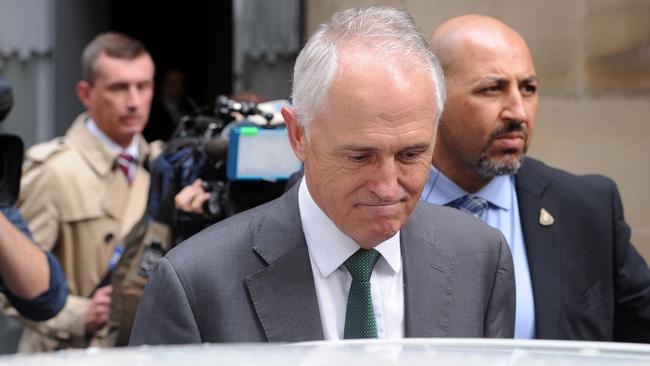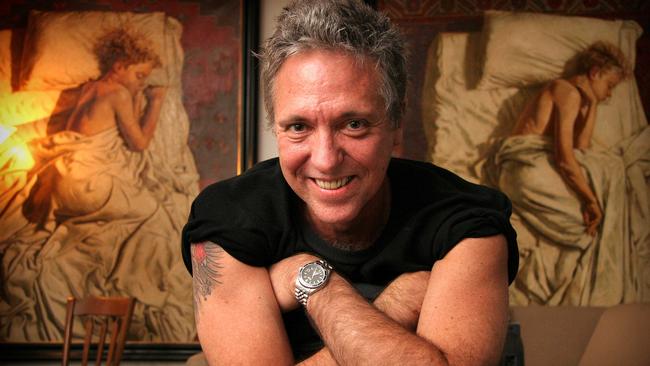PM won 18C support on day Leak died
The PM was shattered by Bill Leak’s death. He secured a cabinet agreement to reform section 18C on the day he died.

On the morning of Bill Leak’s death, Malcolm Turnbull was in a cabinet meeting in Sydney.
In hindsight, the March 10 meeting was seminal, lasting three hours before breaking at 1pm.
Senior cabinet sources have confirmed this was the meeting at which the Prime Minister secured a historic agreement among his most senior colleagues for a rewriting of section 18C of the Racial Discrimination Act.
After three years of bitter debate over the crippling effect of the laws on freedom of speech, Turnbull had achieved what had been denied to Tony Abbott.
Turnbull ordered total silence. It was not to be leaked under any circumstances before it was presented to the partyroom at the first opportunity, which was yesterday. “He read the riot act to anyone that knew,” a senior government source said.
“A lot of work had been done in that meeting … it resolved many of the major issues around it … it paved the way for the decision.”
Turnbull emerged from cabinet, walked into a room with Scott Morrison and found himself in front of a television. It was then he was first confronted with the news that his friend Bill Leak was dead. “It really hit him,” the source said. “He was devastated.”
A week later, Turnbull choked back tears when he led a memorial service at Sydney Town Hall for The Australian’s irreverent, brilliant cartoonist. Leak had made a lasting impact on the Prime Minister’s life over the 31 years they had known each other — roughly half of both their lives. “Bill Leak was accused of racism because of a cartoon, because of a cartoon,” Turnbull told the assembled mourners. “Bill should have grown old and even more wiry.”

Turnbull was shattered by Leak’s death; still is. But there was anguish in the Prime Minister’s tribute that day more profound than would have been obvious to most. It is now a tragic irony that the conclusion Turnbull had reached on the morning of his mate’s death was in no small part because of the unfounded race-hate case brought against the man he had to farewell.
The case against Leak in the Human Rights Commission under 18C, terminated before he died, was based on a complaint about a cartoon confronting an uncomfortable, tragic truth of indigenous social dysfunction.
It had riled Turnbull. Just as the case against the QUT students had started to shape a determination to deal with what he had long believed was an absurdity. “Why should it be illegal to hurt someone’s feelings,” Turnbull would tell colleagues. The two cases become the catalyst for the decision he announced yesterday. But it had been a long time in the making.
A close friend of Turnbull said people often forgot that his successful defence of author and former MI5 officer Peter Wright in 1987 was a case against the British government essentially on an issue of free speech.
Few believed, however, that Turnbull would get to the point he did on 18C. He was tarred with being a dissenter in 2014 when Abbott made a first and failed attempt at reform. But as a senior colleague said, Abbott had ambushed cabinet by “dumping a submission on the table” that no one had been prepared for.
“(Turnbull) cracked it,” the colleague said. “His complaint was the process, not the substance of the issue.”
Proof of Turnbull’s support for changing the act, his colleagues say, is in a blog from 2014 in which he promotes the changes while asking the public for comment. A year later Turnbull would revisit the issue with several MPs, confirming that when his sponsors began canvassing numbers for his leadership challenge, they were assured that Turnbull would get it done as prime minister.
Just before last Christmas, Turnbull was having coffee with Institute of Public Affairs executive director John Roskam when he made an implicit promise. Roskam, a chief protagonist in the reform push, had been badgering Turnbull over 18C for years. It was a totemic issue for the IPA. As Turnbull rose to leave, he turned and said: “Leave it with me.”
Roskam wasn’t convinced. He recalled being told by Turnbull in 2015 he would pursue it. Come the 2016 election, Turnbull left a wake of hopefuls deflated after declaring it wasn’t a first-order issue for his government and there were no plans to move on it. He would tell a colleague: “About 100 people care about 18C and there are 16 million people on the electoral roll.”
In the month before Turnbull’s meeting with Roskam, a stream of backbenchers began to approach him on the issue. “He realised then that it was becoming a bigger issue in the partyroom,” said a source.
Turnbull spoke to Dean Smith, who was then chair of the joint parliamentary committee on human rights. It was decided that an inquiry would be undertaken. That committee report was handed down last month. For Turnbull it wasn’t what he had hoped for. The committee failed to agree on a recommendation about changes to the act, landing instead on procedural changes around the complaints process. Again, those who had renewed optimism about Turnbull’s dedication became doubtful, with the absence of parliamentary cover to justify acting.
But in Turnbull’s mind, he was locked in. At last week’s cabinet meeting the issue was discussed again. The mechanics had almost been finalised. Again a gag order was imposed. Nothing leaked.
Turnbull began making calls to selected senior MPs and ministers late last week to gauge support for what was only offered as vague proposals around dropping the words “offend and insult” from the section in favour of a stronger offence of “harass”. His argument was, as it is now, that the change to harassment strengthened racial vilification protection, which as a legal term can refer to a single incident, and dropped subjective tests of “offend” and “insult”.
None of those canvassed last week knew, however, just how far the Prime Minister intended to go when the bill was approved at a marathon cabinet meeting on Monday night that broke at 10.30.
A case was put to Turnbull that it would be a difficult political sell to remove “humiliate” leaving the text to retain only “intimidate” with the addition of “harass”. This is where they expected him to land, and the majority of the partyroom was happy to be wrong.
There was a subtle hint to where Turnbull was headed, in the government’s multicultural statement on Monday. For the first time it inserted freedom of speech as a fundamental Australian value.
What had “pissed off” Turnbull more than anything over the past months, according to those close to him, was the myth that this was somehow a “conservative issue”. In fact some of the strongest supporters of the changes were moderates. Around the cabinet table, Turnbull had the strong backing of Christopher Pyne, Marise Payne, Simon Birmingham and Arthur Sinodinos, hardly the types anyone could describe as reactionaries. Those pushing strongest in the partyroom included “wets” Tim Wilson and James Paterson.
Fittingly, perhaps, the architect of the bill to go before the Senate was Attorney-General George Brandis. He had been blamed by many colleagues for the torpedo that sank Abbott’s vision of changing the act three years ago, having publicly and clumsily described the debate around people having “a right to be bigots”.
The politics became all too difficult for Abbott. But it was Abbott who was the first to rise in the Liberal partyroom meeting yesterday to congratulate Turnbull.









To join the conversation, please log in. Don't have an account? Register
Join the conversation, you are commenting as Logout